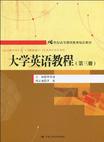大学英语教程(第三册)
出版时间:2010-1 出版社:中国人民大学出版社 作者:廖根福 编 页数:243
前言
21世纪,科学技术发展日新月异,发明创造层出不穷,知识更新日趋频繁,全民学习、终身学习已经成为适应经济与社会发展的基本途径。近年来,我国高等教育取得了跨越式的发展,毛入学率由1998年的8%迅速增长到2008年的23.3%,已经进入到大众化的发展阶段,这其中高等继续教育发挥了重要的作用。同时,高等继续教育作为“传统学校教育向终身教育发展的一种新型教育制度”,对实现“形成全民学习、终身学习的学习型社会”、“构建终身教育体系”的宏伟目标,发挥着其他教育形式不可替代的作用。 目前,我国高等继续教育的发展规模已占全国高等教育的一半左右,随着我国产业结构的调整、传统产业部门的改造以及新兴产业部门的建立,各种岗位上数以千万计的劳动者,需要通过边工作边学习来调整自己的知识结构、提高自己的知识水平,以适应现代经济与社会发展的要求。可见,我国高等继续教育的发展,既肩负着重大的历史使命,又面临着难得的发展机遇。 我国的高等继续教育要抓住机遇发展,完成自己的历史使命,从根本上说就是要全面提高教育教学质量,这涉及多方面的工作,但抓好教材建设是提高教学质量的基础和中心环节。众所周知,高等继续教育的培养对象主要是已经走上各种生产或工作岗位的从业人员,这就决定了高等继续教育的目标是培养能适应新世纪社会发展要求的动手能力强、具有创新能力的应用型人才。因此,高等继续教育教材的编写“要本着学用结合的原则,重视从业人员的知识更新,提高广大从业人员的思想文化素质和职业技能”,体现出高等继续教育的针对性、实用性和职业性特色。 为适应我国高等继续教育发展的新形势、培养应用型人才、满足广大学员的学习需要,中国人民大学出版社邀请了国内知名专家学者对我国高等继续教育的教学改革与教材建设进行专题研讨,成立了教材编审委员会,联合中国人民大学、中国政法大学、东北财经大学、武汉大学、山西财经大学、东北师范大学、江西师范大学、南昌航空大学、华中科技大学、黑龙江大学等30多所高校,共同编撰了“21世纪高等继续教育精品教材”,计划在两三年内陆续推出百种高等继续教育精品系列教材。教材编审委员会对该系列教材的作者进行了严格的遴选,编写教材的专家、教授都有着丰富的继续教育教学经验和较高的专业学术水平。
内容概要
为了更好地体现现代高等教育英语教学的特点和要求,真正做到以学生为主体、适应课堂教学和自主学习相结合的特点,本套教材在以下方面下了一些功夫: (1)紧密结合教学大纲的要求和课堂教学实际。编写队伍全部都是来自教学第一线的教学骨干,充分地把各位编者的教学经验融入到教材中,特别是在选编课文时,注重选编短小精悍的短文,让师生在一个教学单位时间内能够完成一个相对完整的内容。 (2)选材新颖。无论是交际技能,还是课文学习,抑或是写作训练,从形式到内容,编者都注重选择最新的语料,并努力使英语学习寓于趣味性、娱乐性之中,以使得课堂教学和课后自学都不会枯燥乏味。 (3)注重基础训练。各册内容特别注重基本知识和基本技能的训练,设计了数量可观的练习;同时,考虑到部分学生入学时需要加强英语基础知识的学习,本套教材特别编写了《预备教程》,以供有需要的班级和学生在语音和基础语法方面加强复习和练习。 (4)编排形式科学。本套教材的主体部分按照交际技能、课文学习、综合练习和写作训练进行编排,努力做到在听、说、读、写、译五个方面提高学习者的英语水平。 (5)强调自主学习的特点。现代教育强调“教师为主导、学生为主体、学生自主学习”的理念;同时,高中毕业后进入高等院校继续学习的学生对母语已经掌握得比较好了,而有些学生英语语感相对较差。为此,我们特别编写了《基础英语语法》,以使英语学习者更好地利用母语优势。 (6)结合现代教育技术和利用辅助教学手段。与纸质教材配套,我们充分利用了现代计算机和多媒体技术制作了供学生使用的多媒体课件和供教师使用的课堂教学课件,以使得课堂教学和课后自学都更加直观和有趣。
书籍目录
UNiT 1 PART I Communicotion 5kills Expressing Opinions PART II Text A Bringing up Children( I ) PART IIIText B Bringing up Children(][[) PART IV Writing Work Letters of Thanks and Congratulations UNIT 2 PART ICommunicotion Skills Expressing Trust and Distrust PART II Text A Air Pollution Linked to Stroke Risk, PART IIIText B Give a Man a Fish PART IV Writing Work Letters of Introduction UNIT 3 PART I Communicotion Skills Expressing Approval and Disapproval PART II Text A What Is Money and What Are Its Functions? PART IIIText B Insurance PART IVWriting Work Letters of Job Application UNIT 4 PART I Communicotion Skills Expressing Possibility and Impossibitity PART IIText A The Olympic Games PART III Text B John Steinbeck PART IVWriting Work Letters of Resignation UNIT 5 PART I Communicotion 5kills Expressing Ability and Disability PART II Text A The Great Wall PART IIIText B The Thames Barrier PART IV Writing Work Letters of Invitation UNIT 6 PART I Communicotion 5kills Expressing Remembering and Forgetting PART IIText A The Meaning of a Glance PART HI Text B My Life as a Writer PART IVWriting Work Memorandum UNIT 7 PART I Communicotion Skills Expressing Insistence and Opposition PART II Text A Conquering Sicily PART IIIText B Entertaining Kids on Thanksgiving Day PART IVWriting Work Proposing Intention--Business Letter UNIT 8 PART I Communication Skills Expressing Determination PART II Text A Job Training PART IIIText B Schooling and Education PART IVWriting Work Letters of Application UNIT 9 PART I Communication !Skills Expressing Hesitation and uncertainty PART II Text A Interesti g Clothes PART INText B Divorce Rate PART IV Writing Work Letters of Reference UNIT 10 PART I Communication Skills Expressing OfferingAccepting or Declining Help PART II Text A Open Government PART III Text B Political PARTies PART IVWriting Work Letters of Recommendation UNIT II PART I Communication Skills Expressing Asking for Permission , Permitting and Declining Permission PART IIText A Cyber Love PART III Text B Cyber Criminals PART IV Writing Work Sales Contract UNIT 12 PART I Communication Skills Expressing Invitation, Accepting Invitation and Declining InvitaUc PART IIText A The Life of the Greatest Comedy ArUst--Charlie Chaplin PART IIIText B Benjamin Franklin PART IV Writing Work Service Contract 综合练习
章节摘录
It is generally accepted that the experiences of a child in his first years largely determine his character and later personality. Every experience teaches the child something and the effects are cumulative. "Upbringing" is normally used to refer to the treatment and training of a child at home, which is usually distinguished by the term "education". In a society such as ours, both parents and teachers are responsible for the opportunities provided for the development of the children, so upbringing and education are interdependent. The ideals and practices of child upbringing vary from culture to culture. In general, the more rural is the community, the more uniform are the customs of child upbringing. In more technological developed societies, the period of childhood tends to be extended over a long time, resulting in more opportunities for education and greater variety in character development. Early upbringing at home is naturally affected both by the cultural pattern of the community and by the parents capabilities and their aims, and depends not only on upbringing and education but also on the abilities of the child. Parents can decide what is normal in physical, mental and social development, by referring to some of the many books based on scientific knowledge in these areas, or by comparing notes with friends and relatives who have children. Intelligent parents, however, realize that the particular setting of each family is unique, and there can be no rigid general rules. They use general information only as a guide in making decisions and solving problems. For example, they will need specific suggestions for problems such as speech difficulties or problems in learning to walk or control of bodily functions. In a more general sense, though, problems of upbringing are recognized to be problems of relationships within an individual family. All parents have to solve the problems of freedom and discipline. The younger the child is, the more readily the mother gives in to his demands to avoid disappointing him. An example of this is the young childs need to play with mud and sand and water. The child must be allowed to enjoy this game before he reaches a higher stage of development. Similarly, throughout life, each stage depends on the satisfactory completion of the one before.
图书封面
评论、评分、阅读与下载
用户评论 (总计0条)
推荐图书
- 黄霑:大家姐傳奇
- 地球美紗樹 3巻
- 天真本色
- トゥー・エスプレッソ
- コープスパーティー BloodCovered 1 (ガンガンコミックスJOKER) (コミック)
- 西湖的风花雪月
- 年华是无效信
- 大变革的前奏
- 脳を活性化する大人の切り絵 2
- 驼峰航线
- 金牌主廚的法式甜點
- コープスパーティー BloodCovered 2 (ガンガンコミックスJOKER) (コミック)
- 雪舞者
- 同思集
- 秦時明月 05
- 爆漫。 07
- 多啦A夢大長篇(新裝版) 12
- 多啦A夢大長篇(新裝版) 13
- 网上炒股、手机炒股一册通
- 网店人气商品页面设计技法
- 职业生涯规划参考教案
- 职业生涯规划教师参考用书
- 职业生涯规划学习指导用书
- 管理运筹学
- 市场营销学
